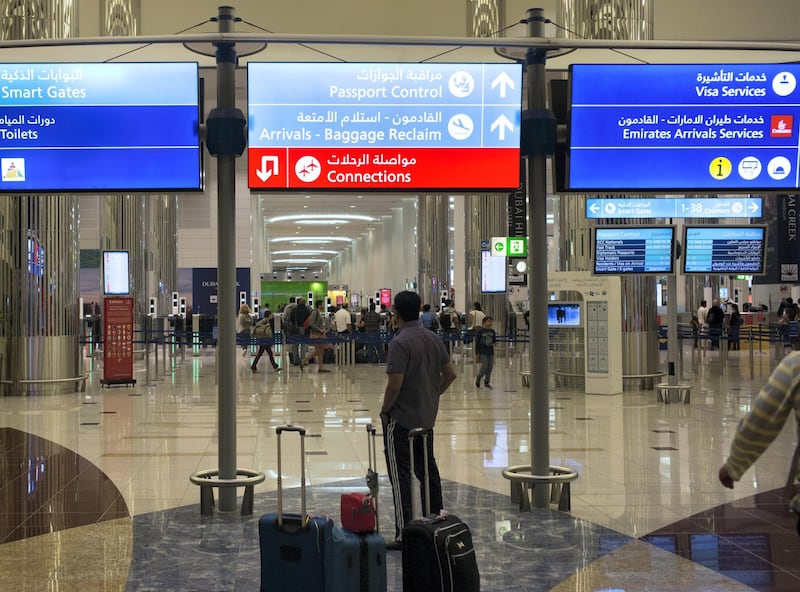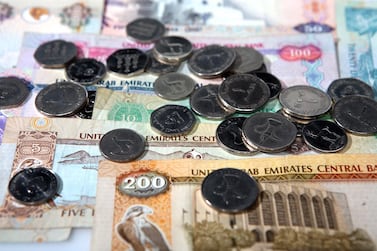I worked in the UAE for two years and I had a bank account. When I decided to relocate to Europe, I requested for my account to be closed. The bank refused since there was some money to be deducted for the purchases I made in my last week using my credit card. I had only two days before I had to leave as my flight was booked, but customer service at the bank told me I had to wait four or five working days until all payments were settled.
Since my account was not officially closed, the bank might charge a monthly penalty as I left very little in my account and it requires a minimum of Dh3,000. My residence visa was cancelled, but I want to come to the UAE on a visit visa. Will there be a problem at the airport? I'm afraid the bank will have a case against me for outstanding fees. AJ, Germany
It is standard practice for there to be a delay in closing a bank account if a credit card is in use as payments on a card can take a few days to show up in the bank’s system. Ideally, credit cards should be repaid in full and cancelled a few weeks before leaving the country for this reason. What is not clear is whether AJ agreed with the bank to close her account after settlement was made or whether it was changed to a non-resident account. She is aware that the account terms required a minimum balance which has not been met so it is quite possible that charges have accumulated but she needs to contact the bank herself in order to find out.
At the same time, she can ask the bank if any action has been taken against her and a police case registered as that would cause issues at immigration when trying to re-enter the country. The only way to resolve an issue like this is to make contact with a bank and have a conversation with them. If there is an outstanding balance with a police case, it can be repaid and the case withdrawn and it is certainly advisable for anyone to clear all debts in this way.
I own a few shares that I invested in when in the UK nine years ago and the time has come when I need to sell them. I have tried to look into the possible tax liabilities but am totally confused as there seem to be lots of conflicting rules. I have been in Abu Dhabi for nearly eight years and expect to be here for a few more. PT, Abu Dhabi
The rules regarding shares and capital gains tax can indeed be complicated, especially if a person is not a UK tax resident, and they don’t apply the same way to all assets. Once a person has been out of the UK for a full five tax years (a tax year is April 6 to April 5) the ‘five-year rule’ applies and this means that for assets such as shares, there is no capital gains tax liability for a non-resident on the sale of shares. If someone returns to the UK with fewer than five years as a non-resident, then they will have tax to pay on the sale of the share. The rules are different in respect of property sales.
I work for a company based in the Dubai International Financial Centre (DIFC) and I have just returned to work after having been off sick for 11 working days. I was very unwell and got certificates from my doctor. I have now been told by my HR manager that I will have a salary deduction for most of this time as I was also ill for a few days earlier in the year. Is this right as I was genuinely ill and it seems unfair that I will be penalised? WM, Dubai
DIFC has its own employment laws and these were updated earlier this year, DIFC Law No. 2 of 2019. These are very clear in terms of sick leave and sick pay as set out in section 4, clauses 34 and 35.
Clause 34 states that “an employee is entitled to sick leave of 60 consecutive or intermittent work days in aggregate in a 12-month period”. Clause 35 says “an employer shall pay sick pay to an employee at: 100 per cent of the employee's daily wage for the first 10 work days of sick leave taken in a 12-month period; and 50 per cent of the employee's daily wage for the next 20 work days of sick leave taken in the same 12-month period”. It goes on to state that “the employee shall not be entitled to receive any wage for any additional sick leave taken in the same 12-month period.”
In this case, the employer is abiding by the DIFC rules in reducing the income payable for the days taken as sick leave.
Keren Bobker is an independent financial adviser and senior partner with Holborn Assets in Dubai, with over 25 years’ experience. Contact her at keren@holbornassets.com. Follow her on Twitter at @FinancialUAE
The advice provided in our columns does not constitute legal advice and is provided for information only







